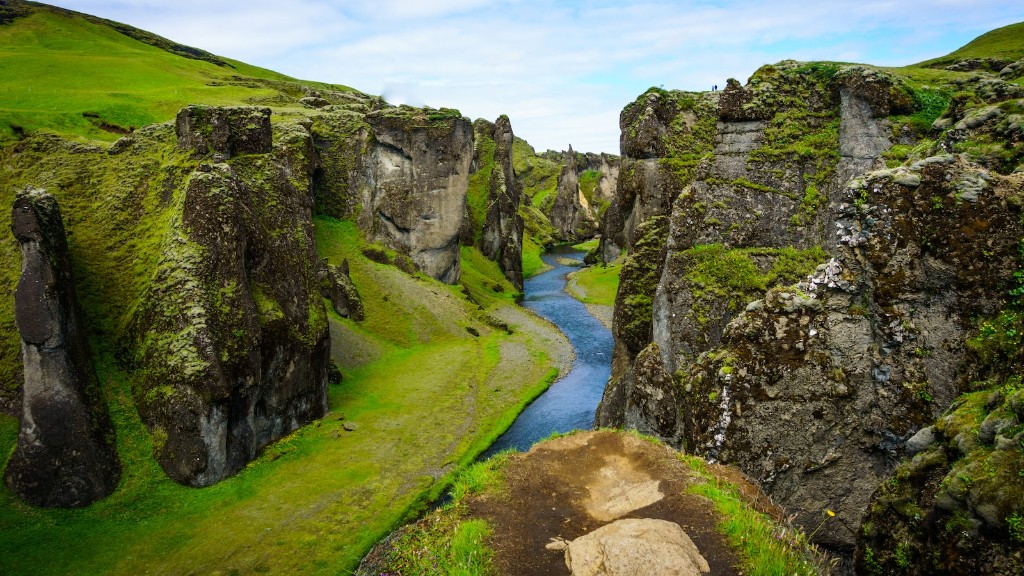How did the Nile River Affect Civilization in Egypt?
The Nile River was a natural lifeline for early civilizations along the Nile in Egypt. It provided numerous benefits enabling the cultivation of crops and the development of urban centers along its banks. The Nile River had an immense impact on the development of the ancient Egyptian civilization. It has carried numerous people, creatures and cultures which have created a diverse and developing society. From that, emerged a sophisticated society with new and creative technologies as well as an advanced culture by which the Egyptians are known and appreciated.
Historians have long been fascinated by the dynamics of the river and why it was so far-reaching in its influence. Egypt was dependent on the river for its existence, as almost all aspects of the Egyptian culture and economy revolved around it. The Egyptian’s beliefs about the gods and goddesses were heavily intertwined with the life-giving river as well. The annual flooding brought vital nutrients to the soil, allowing for the growth of crops and provided an abundance of fish for food. Fertile soil along the banks of the Nile enabled the emergence and maintenance of a powerful agricultural system.
The river also allowed for the transportation of goods and the movement of people, which helped further the development of trade. This ability to exchange goods, other cultures, and ideas was a great benefit to the development of Egypt’s civilization. Merchants, sailors and laborers began to populate the river towns, and soon technology, culture, and religion followed. The Nile even acted as a defensive barrier, protecting Egypt against invasion. The river was so vital to Egypt’s survival that it was often referred to as the gift of the Nile.
In addition to being a vital source of food and an excellent highway, the river provided much needed natural resources such as clay, rocks, and mud for building materials, papyrus which was used to write paper and rope or thread for clothing. Through the use of dams, the Egyptian’s were able to control the flow and water levels of the river. This technology would become essential to the development of successful civilizations, cities, and monuments. The land of Egypt was connected through the Nile valley and the many branches of the river, which enabled communication and transportation.
The Nile was more than just a geographic benefit, it was a spiritual, economic and social presence. The Egyptians’ lives revolved around the gods and goddesses they worshipped and the Nile was seen as the giver of life. The social and economic effects of the river permeated every aspect of daily life. For centuries, the Nile has been a source of life and sustenance for the people of Egypt and the lasting impact of the Nile on the formation and development of their early civilization cannot be overstated.
The Nile’s Contribution to Education, Politics, and Religion
For the Ancient Egyptians, education and politics were inextricably linked. The need for administrators of the economy and for scribes to record the activities of the court and the people increased with growing prosperity and the need for infrastructure created by the river. A system of education was developed based on the basis of apprenticeship and tutorship by the upper classes. Education was mainly dedicated to teaching the arts of writing and mathematics.
In addition to trade, the Nile allowed for the blossoming of politics. The river enabled communication between the different states of Egypt. By using the river the each of the different city states could band together and form powerful alliances. In this way the ancient Egyptians were able to build and conquer vast empires, which led to the emergence of a powerful political system.
The primary religion of the Ancient Egyptians revolved around the gods of the Nile. These gods were believed to be the ones who provided the gifts of life. The river gods watched over their people, supplying them with food and materials. They were also thought to be the keeper of knowledge and wisdom, protecting the souls of their people and leading them in the afterlife. The gods of the Nile were held in high reverence and were part of everyday life.
The Nile Provides a Basis for Writing and Record Keeping
The cultivation of crops, development of trade and construction of monuments could not have been accomplished without records and writing. The Ancient Egyptians used a type of script, called Hieroglyphs, which was developed along the banks of the Nile. The writing system was used, not only for record keeping, such as accounting and legal documents, but also to communicate religious, philosophical, and scientific ideas. Thus, writing became an integral part of the Ancient Egyptian culture.
Writing and record-keeping were essential for the day-to-day business and economic activities of the Egyptians. Trade was conducted with neighboring nations which was made possible by the Nile as a communication route. Scribes and administrators in different cities could use the same language and symbols to record accounts, laws, and literature. This way of writing and record-keeping was being used until it was replaced by the Greek and Roman alphabet in the 300s BCE.
Records were kept for commercial and ceremonial purposes, as well as for tracking the names and roles of people who held important positions in the government and the court. Most of their records were written on papyrus scrolls; texts from the first ancient Egyptian kingdom, the Early Dynastic Period, were written on clay tablets. Papyrus scrolls and clay tablets were used for record keeping until the arrival of paper in Egypt during the 7th century.
The Buildings and Monuments of Ancient Egypt
The Ancient Egyptians relied heavily on the clean water provided by the Nile to build the famous monuments of Ancient Egypt. Some of their greatest achievements are the pyramids, believed to have been built as tombs for their rulers. To create these monuments, enormous stones were cut and quarried from the banks of the river. These stones were transported on wooden barges, and then hauled and lifted into place using wooden cranes, winches, and ropes.
The Ancient Egyptians also used the river to build irrigation systems, temples, and other monuments. The temples were nearly as important as the tombs and the most renowned of these is the temple of Karnak. The Nile also provided a convenient water supply for the temples, where priests and attendants attended rituals, supplied food and tended the gods.
The Nile provided other benefits for the people of Ancient Egypt such as fishing and hunting. The abundance of crops, fish, fruit, and animals found along the banks of the river sustained an early Egyptian diet. The river not only served as a source of food, but also provided a stimulus to trade and economic activities such as weaving, pottery, and metal working. All of these resources and technologies are what allowed the Ancient Egyptians to become a powerful agricultural society.
The Impact of the Nile on Communications and Transportation
Long before the invention of the wheel, the Ancient Egyptians had already mastered the art of transportation. The Nile was crucial to their ability to move large amounts of people and goods quickly and effectively. The river provided a consistent flow of current which allowed for the creation of canoes and boats used for transportation, fishing and hunting. It was not until the 2nd millennium BCE that sailboats were used in Egypt.
The Ancient Egyptians also used the Nile to communicate with one another. Messages were sent via boat, while news could spread faster by word-of-mouth as boats travelled up and down the river. The Nile connected many of the ancient cities of Egypt, allowing for the exchange of goods and services. The river even acted as a highway of sorts, allowing the Egyptians to explore and colonize the vast lands to the south.
The Nile played an essential role in the development of Ancient Egypt. As the longest river in the world, with its headwaters located in East Africa, the river reaches across Egypt and provides nourishment, sustenance, and trade for millions of Egyptians. Without the Nile, the Ancient Egyptians would have never become the powerful and influential culture we know today.
The Lasting Legacy of the Nile
The legacy of the Nile has long exceeded its use in Ancient Egypt. In modern times, the Nile is still regarded as an integral part of Egyptian culture. Its tributaries provide the basis for agricultural activities and its clean waters serve as a source of drinking water and irrigation for the people who live along its banks. The Nile is also the source for millions of hydroelectric power plants, which have been essential in bringing electricity to Egypt’s farther reaches.
Today, the Nile is not only essential to the culture and livelihood of Egypt but its waters still provide a source of life and sustenance for many nations across the region. Agriculture is largely dependent on the Nile and its tributaries. In this way, the river is still a source of nourishment and sustenance for those living along its banks.
The importance of the Nile in Egypt’s past and present cannot be overstated. The river sustained the development of Egypt’s culture and enabled the Egyptians to become one of the most powerful civilizations of antiquity. Through its ability to sustain life and provide access to resources, the Nile enabled the Ancient Egyptians to achieve a high level of sophistication and development that has reverberated across the world to this day.
Conclusion
The Nile River has long been the lifeblood of Egypt, providing sustenance, transportation, and resources to its inhabitants. Its impact on the development of Ancient Egypt cannot be overstated. From providing food and drink to enabling communication and trade, the Nile had an immense impact on the development of Egypt’s culture and society. In modern times, the Nile still serves as a crucial source of life, trade and resources. The legacy of the Nile still remains one of the most influential and important forces in Egypt and continues to be an integral part of the culture and living in Egypt.





